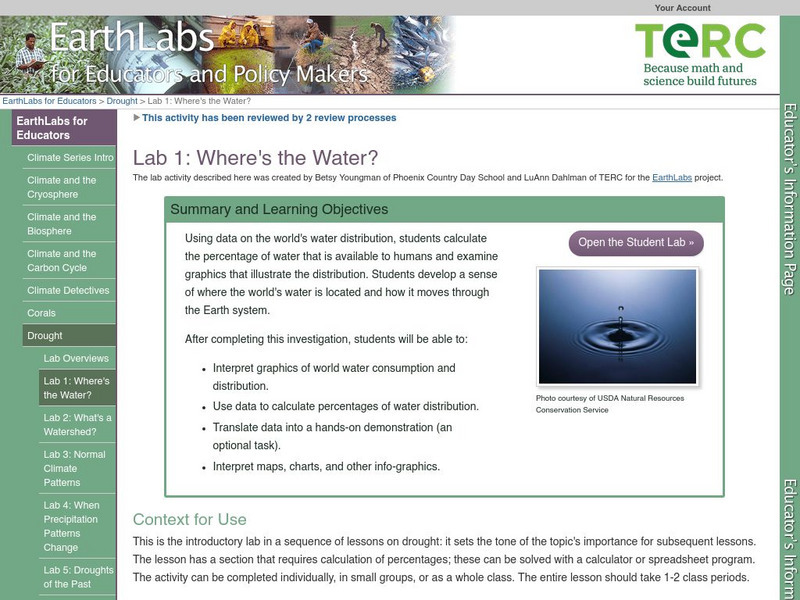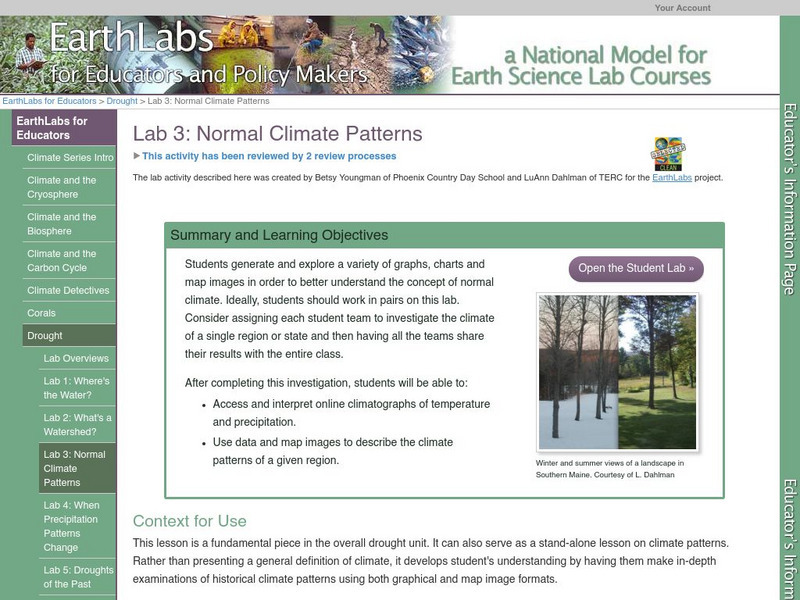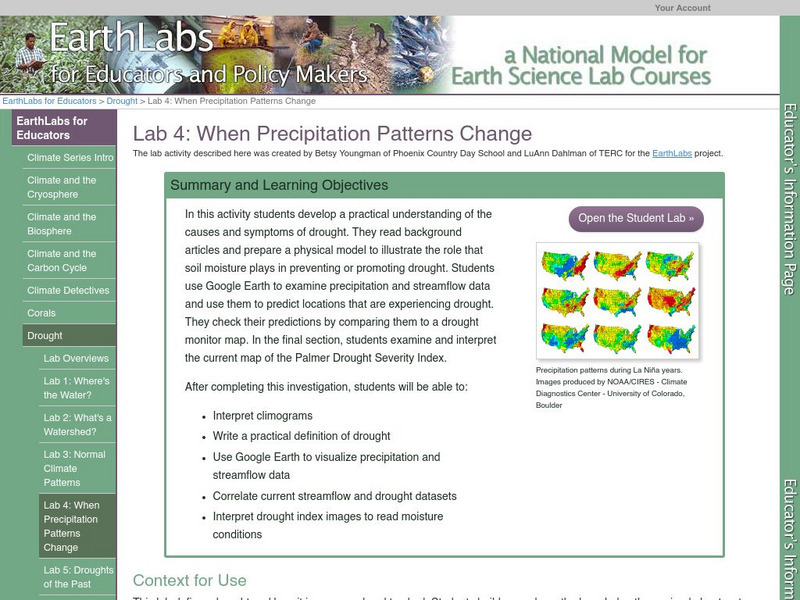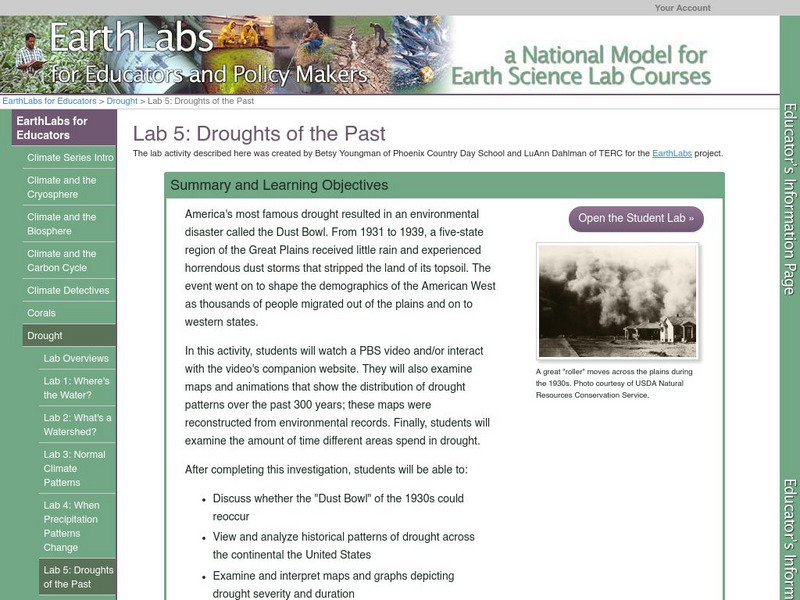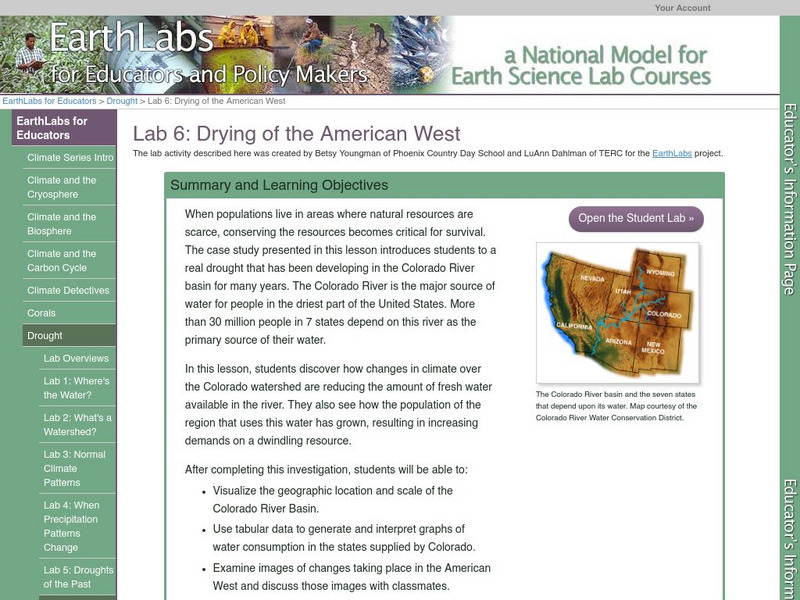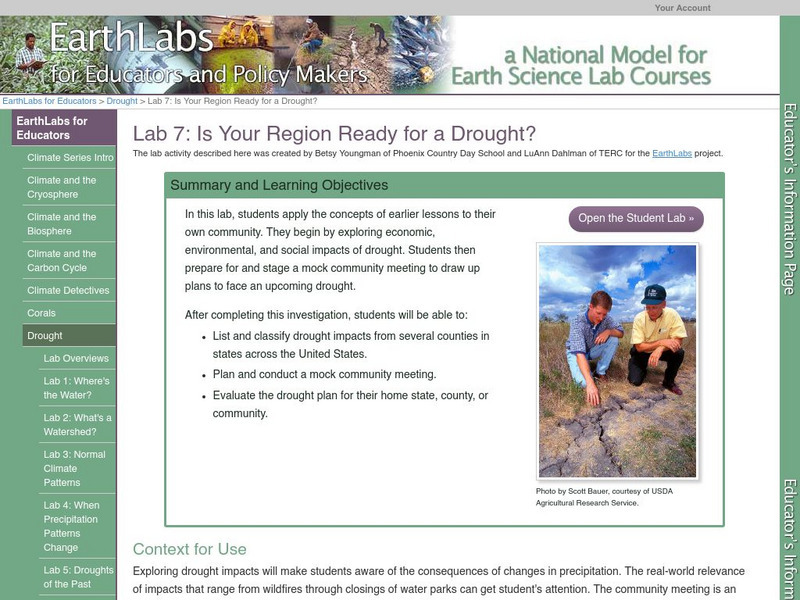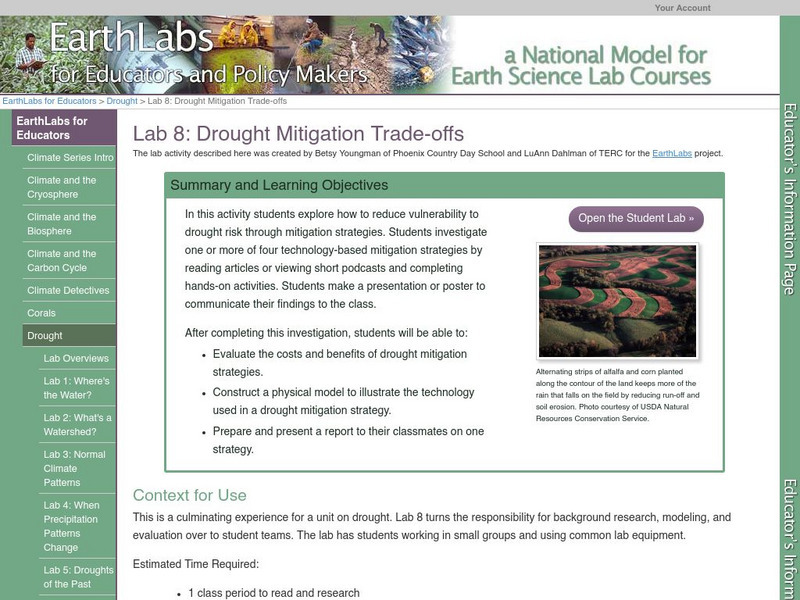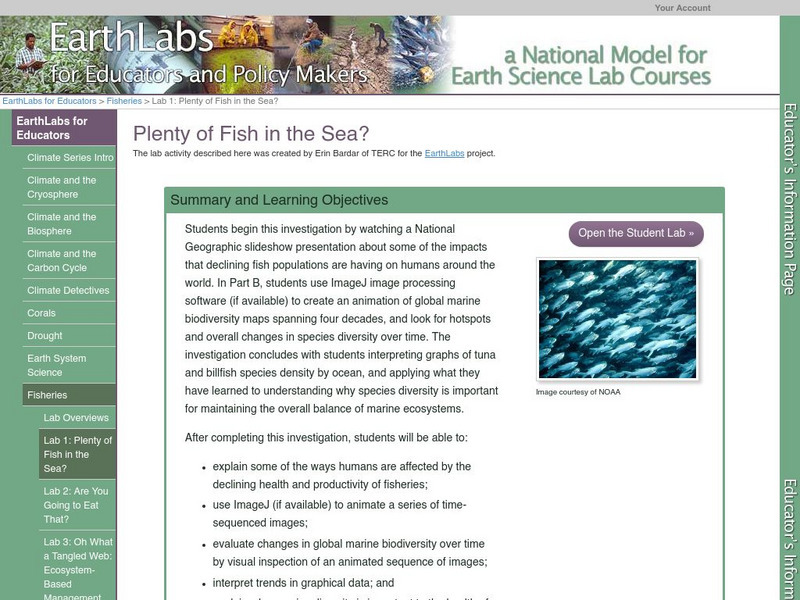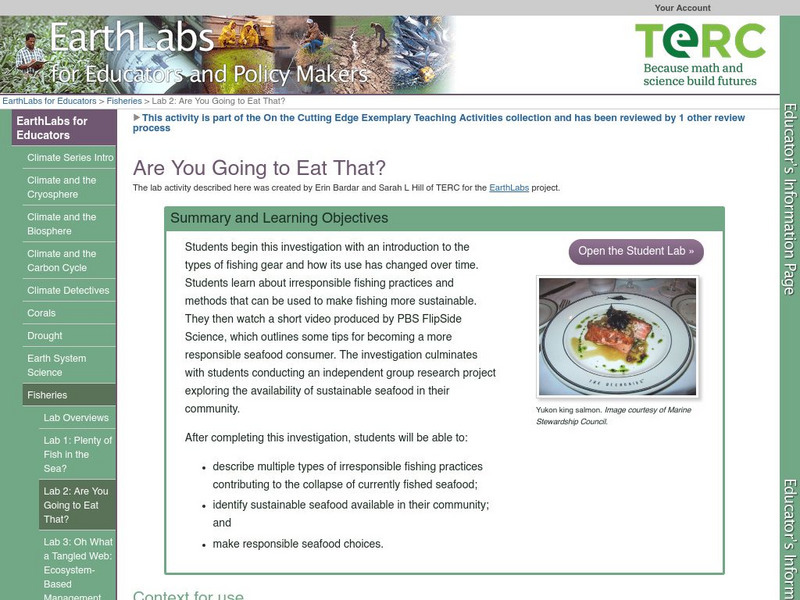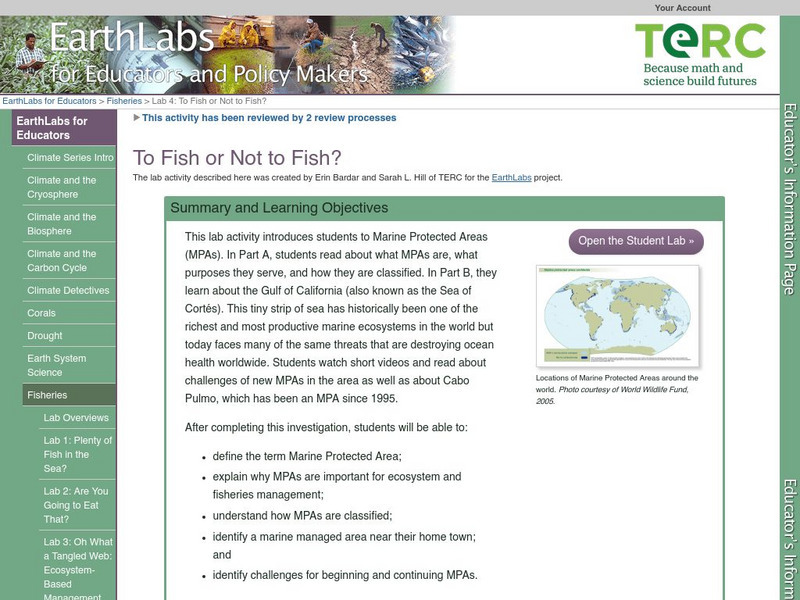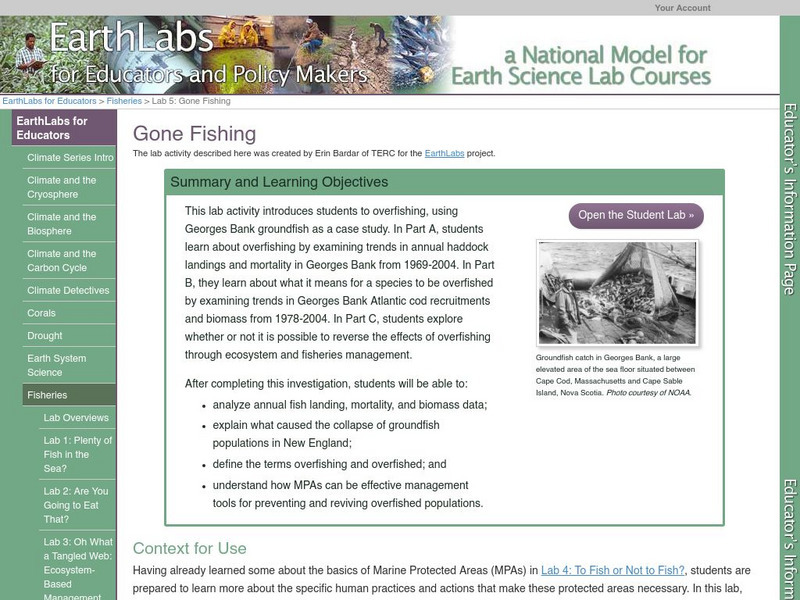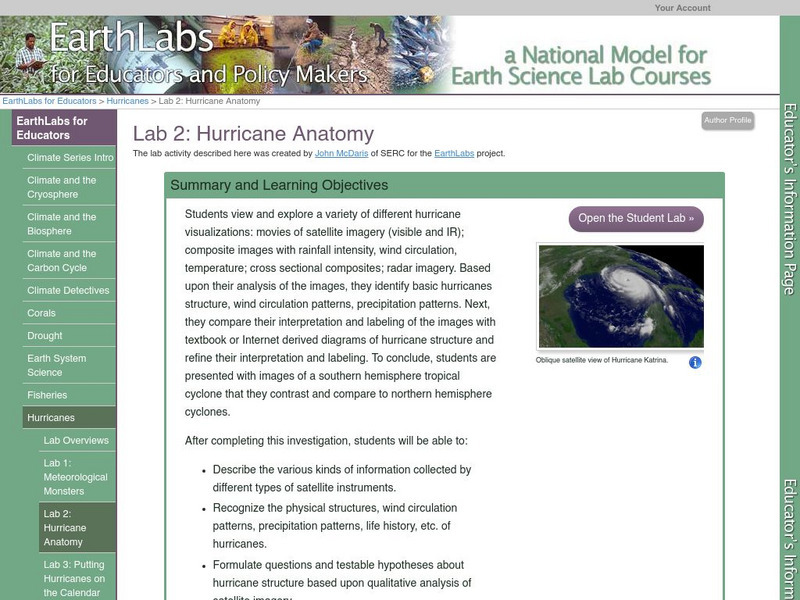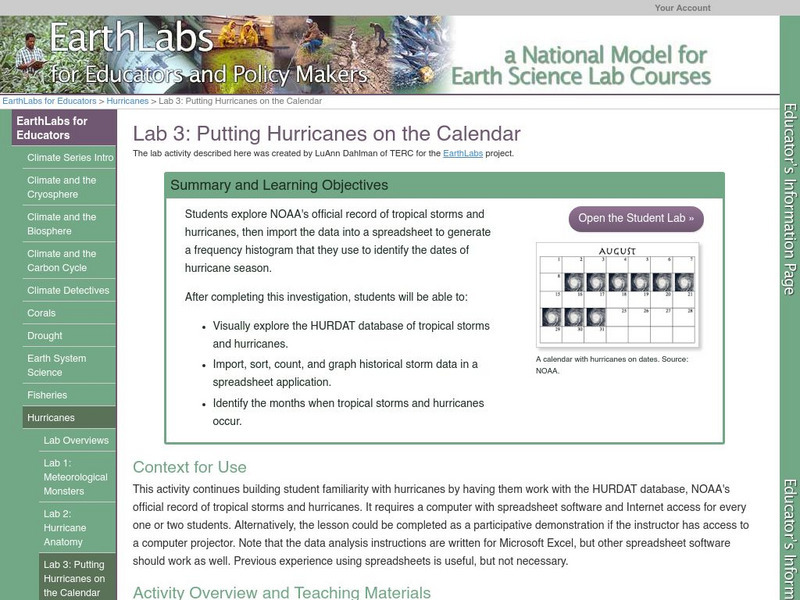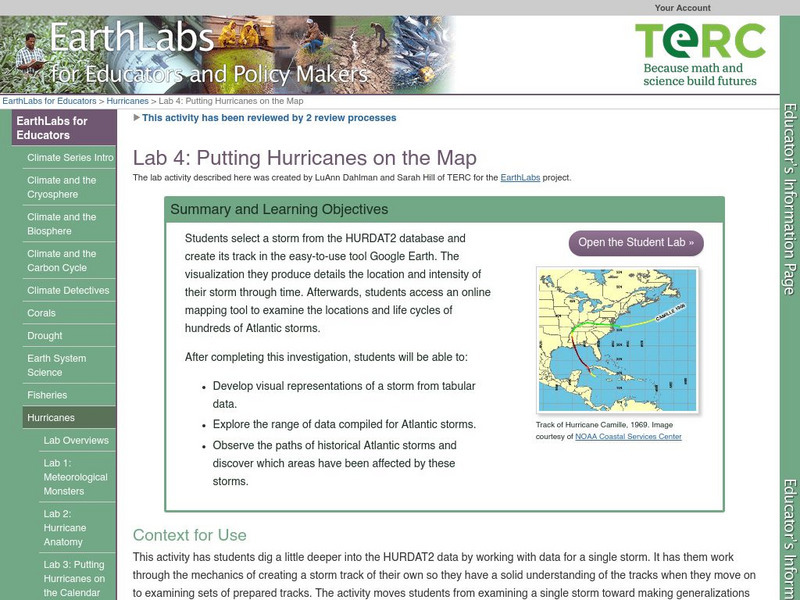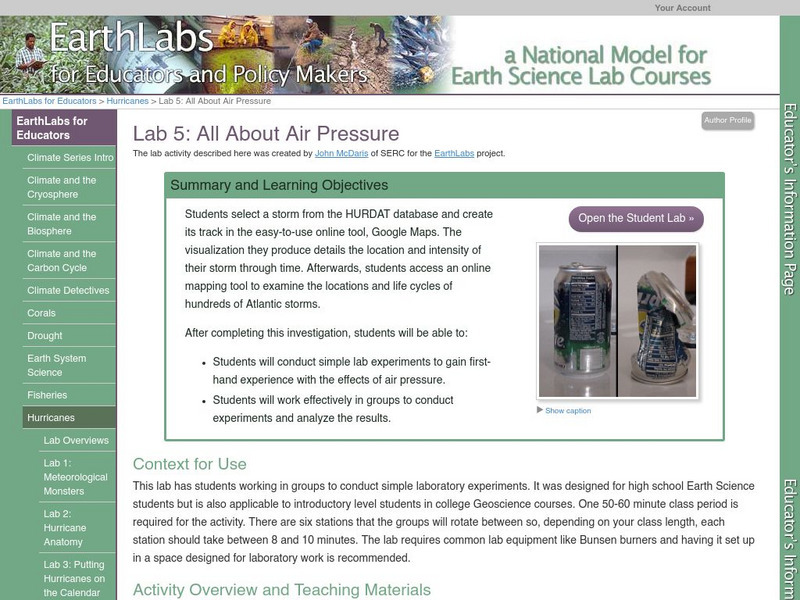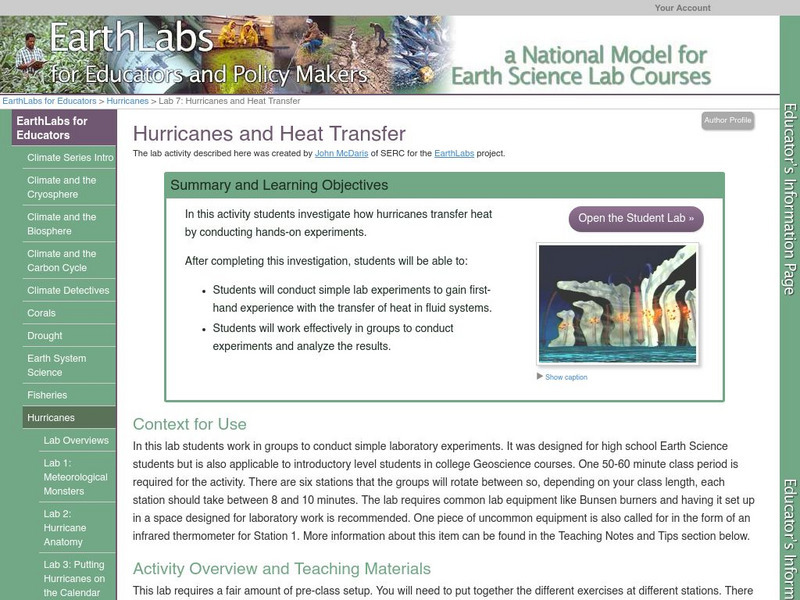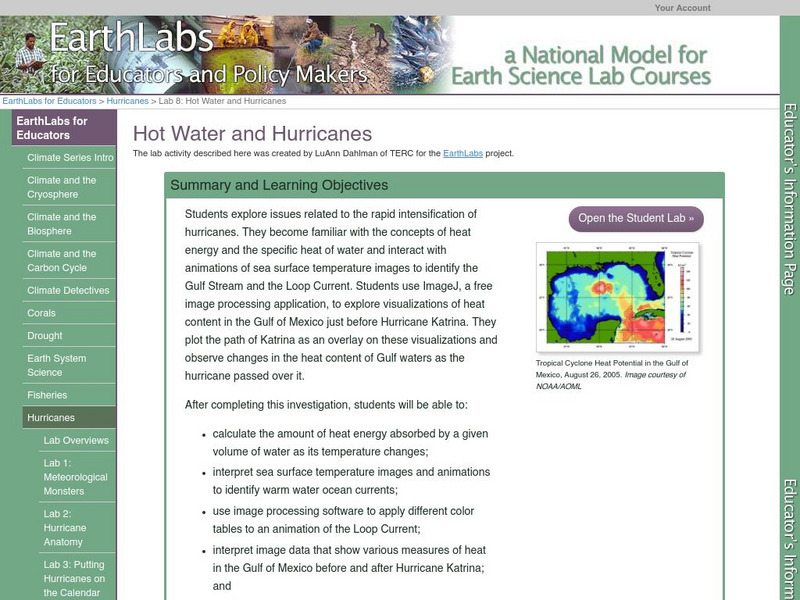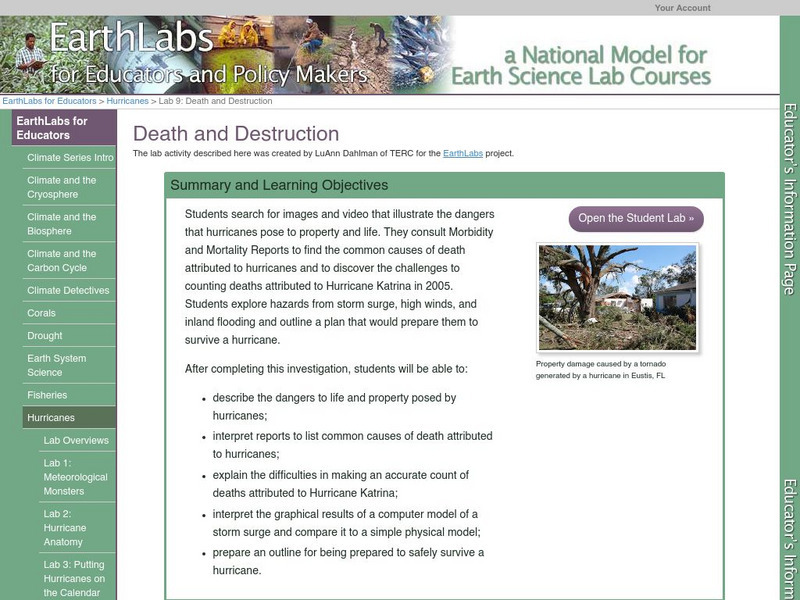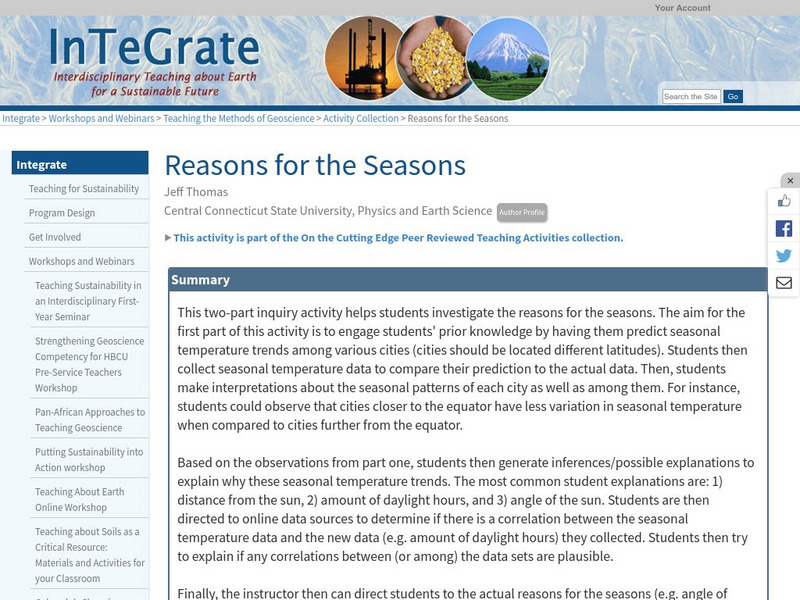Science Education Resource Center at Carleton College
Serc: Lab 6: Future of the Cryosphere
A lab experiment in a series of experiments that investigates climate and the cryosphere. In this lab, students predict what Earth's climate may be like in the future based on models. They also predict how warming temperature and melting...
Science Education Resource Center at Carleton College
Serc: Lab 1: Where's the Water?
A lab experiment in a series of experiments that explores drought. Here students look at the availability of world's fresh water by investigating graphics and analyzing data to see where the world's water supply is going.
Science Education Resource Center at Carleton College
Serc: Lab 3: Normal Climate Patterns
A lab experiment in a series of experiments that explores droughts. In this lab, students analyze data to determine what a normal climate should be.
Science Education Resource Center at Carleton College
Serc: Lab 4: When Precipitation Patterns Change
A lab experiment in a series of experiments that explores droughts. This lab has students looking at precipitation data to define what a drought and predict drought conditions.
Science Education Resource Center at Carleton College
Serc: Lab 5: Droughts of the Past
A lab experiment in a series of experiments that explores droughts. In this activity, students investigate droughts of the past by watching a PBS video and examining maps and animations of drought patterns.
Science Education Resource Center at Carleton College
Serc: Lab 6: Drying of the American West
A lab experiment in a series of experiments that explores droughts. This experiment is presented as a case study for the drought conditions in the Colorado River. With this case study, students study the decrease of fresh water...
Science Education Resource Center at Carleton College
Serc: Lab 7: Is Your Region Ready for a Drought?
A lab experiment in a series of experiments that explores droughts. In this particular lesson, students look at the impact a drought would have on their own community by exploring the economic, environmental, and social consequences of a...
Science Education Resource Center at Carleton College
Serc: Lab 8: Drought Mitigation Trade Offs
A lab experiment in a series of experiments that explores droughts. In this activity, students research drought mitigation technologies and their cost and benefits. They present their findings to the class with physical models and make a...
Science Education Resource Center at Carleton College
Serc: Lab 1: Plenty of Fish in the Sea?
A lab experiment in a series of experiments that investigate fisheries. In this lab experiment, students learn about the future of the global fishing industry by reading an article and analyzing oceanic biodiversity.
Science Education Resource Center at Carleton College
Serc: Lab 2: Are You Going to Eat That?
A lab experiment in a series of experiments that investigate fisheries. During this experiment, students learn about the destruction of the world's fisheries due to obliteration and wasteful fishing practices. Students will also research...
Science Education Resource Center at Carleton College
Serc: Lab 3: Oh What a Tangled Web: Ecosystem Based Management
A lab experiment in a series of experiments that looks at fisheries. In this particular lab, students use tools like Pacific Ocean Shelf Tracking to learn about the management of fisheries through an ecosystem-based approach. During this...
Science Education Resource Center at Carleton College
Serc: Lab 4: To Fish or Not to Fish?
A lab experiment in a series of experiments that investigates fisheries. In this activity, students use an ecosystem-based management tool known as Marine Protected Areas (MPAs) to manage fisheries. This lesson also includes the students...
Science Education Resource Center at Carleton College
Serc: Lab 5: Gone Fishing
A lab experiment in a series of experiments that investigates fisheries. In this lab, students research the overfishing in New England over the last several decades to understand the consequences of this practice. They will also explore...
Science Education Resource Center at Carleton College
Serc: Lab 7: Nitrates and Phosphates and Algae, Oh My!
A lab experiment, in a series of experiments, that investigates fisheries. In this lab, students test the effects of fertilizers and other pollutants on a model ecosystem. Students also examine 2 years of ocean color (chlorophyll...
Science Education Resource Center at Carleton College
Serc: Lab 2: Hurricane Anatomy
A lab experiment in a series of experiments that explores hurricanes. In this lab, students investigate hurricanes to understand the basic storm structures.
Science Education Resource Center at Carleton College
Serc: Lab 3: Putting Hurricanes on the Calendar
A lab experiment in a series of experiments that explores hurricanes. In this lab, students investigate the official records of tropical storms and hurricanes in the Atlantic Ocean from 1851 to today to identify dates for the hurricane...
Science Education Resource Center at Carleton College
Serc: Lab 4: Putting Hurricanes on the Map
A lab experiment in a series of experiments that explores hurricanes. In this particular lab, students choose a storm through HURDAT data base. After choosing the storm, students use Google Maps, NHC Summary Report and NOAA's online...
Science Education Resource Center at Carleton College
Serc: Lab 5: All About Air Pressure
A lab experiment in a series of experiments that explores hurricanes. Students learn about the effects of the differences in air pressure with hand-on experiments and demonstrations
Science Education Resource Center at Carleton College
Serc: Lab 6: Why Keep an Eye on the Barometer?
A lab experiment in a series of experiments that explores hurricanes. For this particular lab, students will study data from 2005 hurricane season including Hurricane Katrina. Students compare air pressure and wind speed and also "they...
Science Education Resource Center at Carleton College
Serc: Lab 7: Hurricanes and Heat Transfer
A lab experiment in a series of experiments that explores hurricanes. In this lab experiment, students explore heat transfer and phase transitions as it relates to hurricanes.
Science Education Resource Center at Carleton College
Serc: Lab 8: Hot Water and Hurricanes
A lab experiment in a series of experiments that explores hurricanes. In this lab experiment, students will investigate the concepts of heat energy and specific heat of water to explore issues related to the rapid intensification of...
Science Education Resource Center at Carleton College
Serc: Lab 9: Death and Destruction
A lab experiment in a series of experiments that explores hurricanes. In this lab experiment, students research the major causes of death in hurricanes by examining photos or videos of hurricane damage. Students will also make a plan to...
Science Education Resource Center at Carleton College
Serc: Ji Tt in Introduction to Demand Analysis
An activity where students study the supply and demand graph to learn about factors that could shift demand curves.
Science Education Resource Center at Carleton College
Serc: Reasons for the Seasons
A well-designed science investigation that has students examine and graph seasonal temperature data from cities at different latitudes. They describe trends they see, and explain what they think causes these trends. They then identify...



